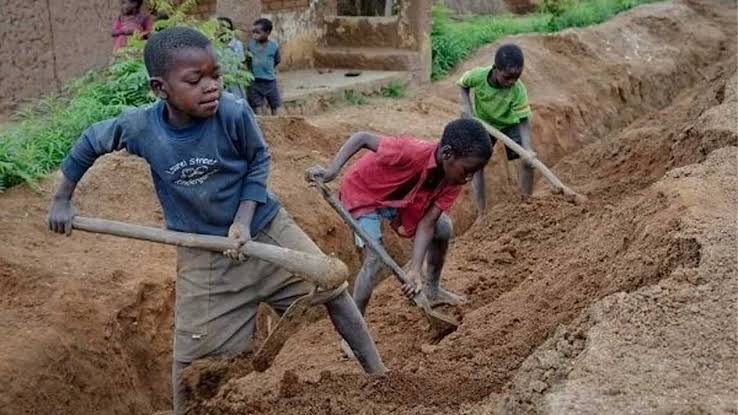The Federal Government has expressed concern over the rising cases of child labour in Nigeria, calling for immediate and effective measures to help eliminate its worst forms and eradicate its high occurrence in the country.
Child Labour: FG Expresses Concern over Rising Cases in Nigeria, Calls for Effective Measures


The Federal Government has expressed concern over the rising cases of child labour in Nigeria, calling for immediate and effective measures to help eliminate its worst forms and eradicate its high occurrence in the country.
The Minister of Labour and Employment, Senator Chris Ngige, made this known during a keynote address at the National Children Conference held in Abuja in commemoration of the 2022 World Day Against Child Labour (WDACL) with the theme, ’Universal Social Protection to End Child Labour’.
Warning against its massive implications on the country in the near future, the senator recalled that world leaders had gathered in 2015 to adopt the United Nations Sustainable Development Goals (SDGs) Target 8.7 as a form of a call to end the various forms of child labour before 2025.
In a statement by the head of Press and Public Relations of the Federal Ministry of Labour and Employment, Ngige lamented over the high incidence of forced labour, modern-day slavery, human trafficking as well as the recruitment and use of child soldiers present in the country and around the world.
He stated that Sub-saharan Africa has seen the involvement of 19.6 per cent African children in child labour and a possible nine per cent in hazardous work, which is in contrast to the continued efforts being made in other parts of the world.
According to him, “In Nigeria, child labour has become a scourge. Several children find themselves on the streets, forced to make a living with others employed in the industrial complexes and in hazardous environments.”
He revealed that statistics by the International Labour Organisation (ILO) as at 2020 shows about 15 million child workers in Nigeria, warning that the lack of mitigating strategies is capable of increasing the number of children engaged in child labour by the end of 2022 and massively affecting the country in the near future.
Describing this year’s theme as a call for more investment in social protection systems to enable the creation of a strong protection base that will help prevent children from being exploited, he, however, noted that Nigeria has made considerable efforts in dealing with the global menace, especially through the adoption and ratification of ILO conventions 138 and 182 that is based on minimum age and worst forms of child labour respectively.

 বাংলা
বাংলা  Spanish
Spanish  Arabic
Arabic  French
French  Chinese
Chinese 
